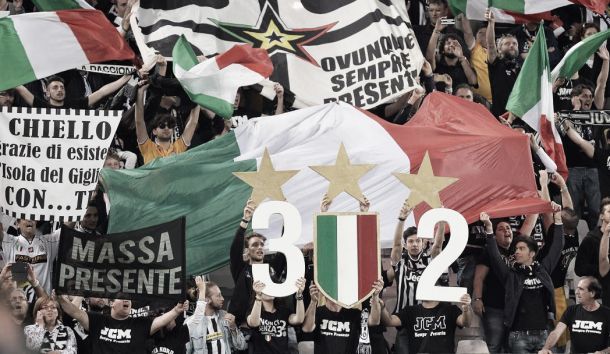After the match-fixing scandal that rocked Italian football in the summer of 2006, which saw five teams severely punished for their actions in selecting favourable referees in order to win their games, the Old Lady hit their lowest point, forcibly dropping out of the top tier for the first time in the club’s (at the time) 108-year history.
The initial punishments were a crushing blow to Juve, who had won the Serie A title the season prior to the punishments being dished out. Before a successful appeal, the Old Lady were automatically demoted to Serie B, the second tier of Italian football, where they would also face a 30-point deduction to begin the season and slapped with a fine close to £31,000,000. The appeal saw the penalties reduced. A nine-point deduction was sufficient enough, the club were stripped of their previous two Serie A titles, ordered to play three home games behind closed doors and their entry into Europe’s elite competition was withdrawn.
After passing their Serie B challenge with flying colours, Juventus went through a few topsy-turvy years. Despite holding onto the likes of Pavel Nedvěd, Giorgio Cheillini, David Trézéguet and Alessandro Del Piero through the scandal, they struggled to make an huge impact in Serie A once promoted again. Their inconsistency in European competitions was another sign of their demise. During a four year period which saw them fall from the top of Serie A to mid-table mediocrity, the club went through six different managers, none of which lasted longer than one full season, with the exception of former Chelsea manager Claudio Ranieri, who stayed in the helm for two years.
Their first two years back in Serie A saw Juventus get 3rd and 2nd place finishes in the league under Ranieri, the first of which saw Juve miss out on the title by 13 clear points to Roberto Mancini’s Inter Milan. It was a different story in the 2008-09 season, when five back-to-back draws in their last eight games saw the title slip away, again losing out to Inter, this time managed by José Mourinho.
After two failed attempts at securing Italy’s top prize, Claudio Ranieri departed, and Ciro Ferreira took on the job full-time. The next season saw the retirement of Pavel Nedvěd following Ranieri’s exit, and Juve struggled from there. Poor away form in the league saw Juve have a considerably worse season, ending in 7th place in Serie A whilst falling to an early exit from the Champions League, before Fulham secured a famous 4-1 at Craven Cottage win to knock the Old Lady out of the Europa League at the round of 16.

Another staff change came into place, when Luigi Delneri was appointed manager. Despite qualifying for the Europa League, Juve struggled to qualify for the group stages, narrowly beating Shamrock Rovers and Sturm Graz to get into the group stages. In a group that saw them matched with Manchester City, Lech Poznań and Red Bull Salzburg, Juventus failed to record a single win, although, in this time, they also failed to record a defeat, drawing all six games in the group, finishing third and exiting the competition early yet again.
Their league season wasn’t going any better. A seventh placed finish, twinned with the prospect of no European football yet again due to Palermo reaching the final of the Coppa Italia, was enough for I bianconeri to see the back of Delneri.

2011-12 saw the start of a revolution in Turin. Juventus playing legend Antonio Conte took over, and despite averaging under two goals a game in the Serie A, Juve went through the entire season unbeaten, securing 23 wins and drawing the other 15 games. They were the first side to complete such a feat in the modern 38-game league format, Perugia and Milan doing the same, however in less games. I bianconeri never slipped out of the top three throughout the whole season. They also reached the final of the Coppa Italia, but lost 2-0 in a fiery affair with Napoli, a game which turned out to be Alessandro Del Piero’s last for the club.
2012-13 was no different from Conte’s first season. The club won the curtain raiser Supercoppa Italiana, where, in a repeat of the Coppa Italia final from the season before, Juventus ran out 4-2 winners after 120 minutes of football in Beijing. The side grew in confidence in Europe as well, reaching the quarter finals of the Champions League, before being beaten by Bayern Munich, who went on to win the trophy, beating fellow countrymen Borussia Dortmund in the final.
Another season gave Juventus a chance to win the title for the third season running, having not won it since their demotion to Serie B. With two league games left to go, Conte’s men have already successfully defended their title, as they currently stand 11 points clear of AS Roma. Their European chances took yet another blow as they were once again knocked out of the Champions League at the group stages, before being knocked out of the Europa League at the semi-final stage to last year’s losing finalists, Benfica. Their form this season is no thanks down to the form of Arturo Vidal, Carlos Tevez and Fernando Llorente, who have scored 56 goals between them in all competitions.
After taking a serious downturn in fortune in 2006, Juventus have finally hit their best. In a time where Italian football is becoming under more scrutiny than ever, and the decline of rivals AC Milan and Inter Milan, are Juventus now the force to be reckoned with in Italy?










































